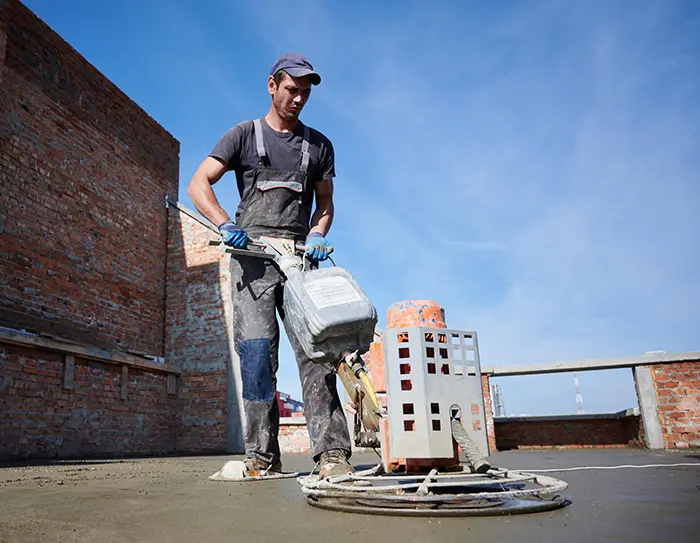When it comes to maintaining a concrete driveway in areas like Long Island, Brooklyn, and Queens, one of the most important steps homeowners can take is sealing it. Not only does sealing protect your driveway from the elements, but it also extends its lifespan and enhances its appearance. In this comprehensive guide, we’ll dive deep into the different types of concrete driveway sealers, how to choose the best one, and the process of sealing to ensure your driveway remains durable and aesthetically pleasing for years to come.
Why Seal Your Concrete Driveway?
Concrete driveways are exposed to various external factors, from weather to vehicle traffic, which can cause cracking, fading, and general wear. Sealing your concrete driveway offers the following benefits:
- Protection Against Water Damage: Concrete is porous, and water can seep in, leading to cracks, especially during freeze-thaw cycles.
- Stain Resistance: Oil, grease, and chemicals can stain concrete; a sealer provides a protective barrier.
- Enhanced Durability: Sealers strengthen the surface, making it more resistant to heavy traffic and deicing salts.
- Improved Appearance: Depending on the sealer, you can achieve a glossy, matte, or natural finish that boosts curb appeal.
Types of Concrete Driveway Sealers
There are several types of sealers available, each with its own unique benefits. Here’s a breakdown of the most common ones:
- Penetrating Concrete Driveway Sealer Penetrating sealers work by soaking into the concrete and reacting chemically to form a barrier within the material. This is particularly useful in areas prone to freezing and thawing, as they block moisture from entering the concrete’s pores. These sealers, such as silanes and siloxanes, are long-lasting and preserve the natural look of the driveway.
- Acrylic Concrete Driveway Sealer Acrylic sealers form a protective film over the surface of the concrete. They come in either solvent-based or water-based varieties and offer UV protection. However, they tend to wear out quicker and may need reapplication every year or two. Acrylic sealers are popular for residential driveways because they provide a high-gloss finish that enhances the concrete’s appearance.
- Polyurethane Concrete Sealer Known for its strength, polyurethane sealers create a durable, glossy finish. They offer superior resistance to chemicals and water but can wear down quickly under heavy traffic, making them less ideal for driveways.
- Epoxy Concrete Sealer Epoxy sealers are exceptionally strong and are more commonly used for indoor surfaces like garages and warehouses. They offer robust protection against oil and chemicals but are not UV resistant, which can lead to yellowing when exposed to sunlight.
- Polyaspartic Concrete Driveway Sealer This newer type of sealer offers excellent protection and has a fast curing time, making it ideal for environments where quick application is needed. It’s resistant to UV rays and provides a high-gloss finish, but it comes with a higher price tag.
How to Choose the Best Concrete Driveway Sealer
When selecting a sealer for your driveway, consider the following factors:
- Climate: For areas with harsh winters, penetrating sealers like silane/siloxane are ideal because they offer superior protection against freeze-thaw cycles.
- Durability: If you want a long-lasting solution that requires less frequent application, consider a penetrating or polyurethane sealer.
- Appearance: If aesthetics are important, acrylic or polyaspartic sealers provide a glossy finish that enhances the driveway’s appearance.
- Traffic Load: Driveways with heavy traffic benefit from sealers that offer strong resistance to abrasion, such as epoxy or polyaspartic sealers.
How to Apply Concrete Driveway Sealer
Sealing your driveway isn’t just about picking the right product; it also involves proper preparation and application to ensure longevity:
- Clean the Driveway: Before applying any sealer, the surface should be thoroughly cleaned using a pressure washer. Any cracks should be repaired, and stains must be removed using a degreaser.
- Apply the Sealer: The sealer can be applied using a roller or sprayer. For best results, apply two coats, ensuring even coverage. Make sure to apply the second coat in a perpendicular direction to the first.
- Curing: Allow the sealer to cure according to the manufacturer’s instructions, which typically range from 24 to 48 hours. Some sealers, like polyaspartic, cure faster and can be driven on within hours.
Concrete Driveway Sealer Price
The cost of sealing a driveway can vary based on the type of sealer and the size of the driveway. Here’s a rough breakdown:
- Acrylic sealers typically range from $30 to $100 per gallon, covering about 200 to 300 square feet.
- Penetrating sealers are more expensive, ranging from $50 to $150 per gallon.
- Polyaspartic sealers, known for their quick curing time, tend to cost more, starting at $100 per gallon.
Hiring Concrete Driveway Sealer Companies Near You
While DIY sealing is possible, professional application ensures that the sealer is evenly distributed and applied correctly. When searching for Concrete driveway sealer near me, ensure they offer the type of sealer best suited for your driveway’s needs and climate conditions.
Conclusion
Whether you’re looking to protect a new driveway or enhance the durability of an existing one, applying the right concrete driveway sealer is essential. With a variety of sealers available, you can choose one based on your specific needs, whether it’s for superior protection, enhanced appearance, or easy maintenance. For homeowners in Long Island, Brooklyn, and Queens, sealing your driveway can provide long-term benefits, from extending its lifespan to improving your home’s curb appeal.

